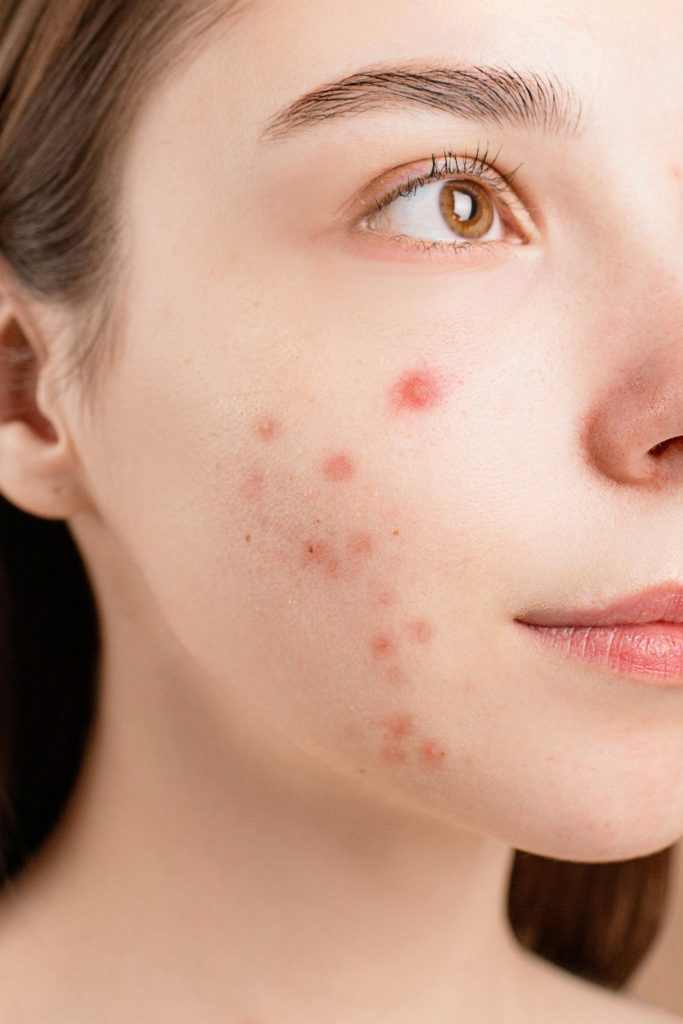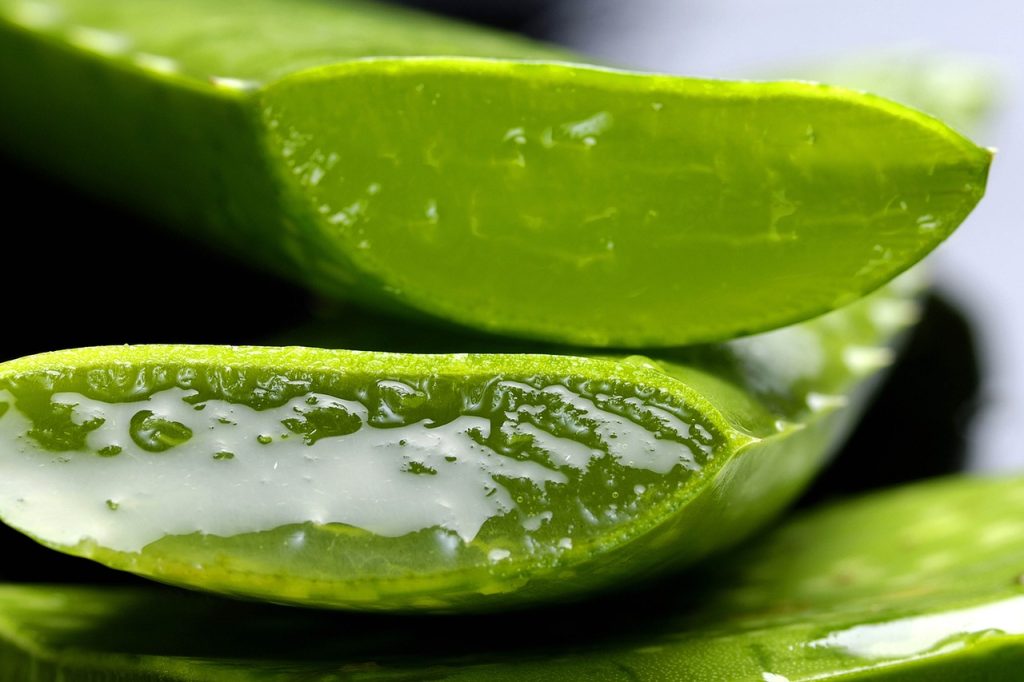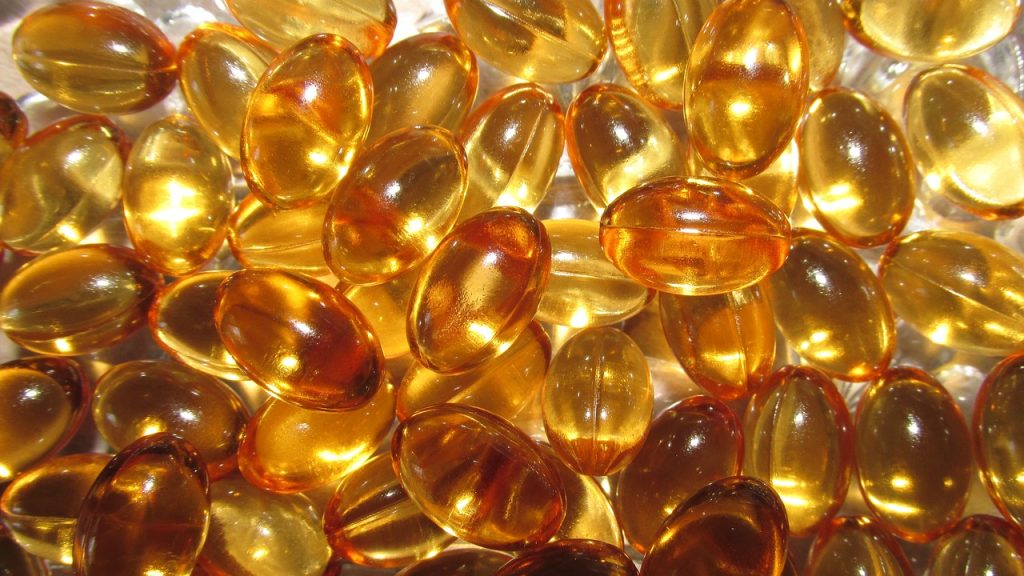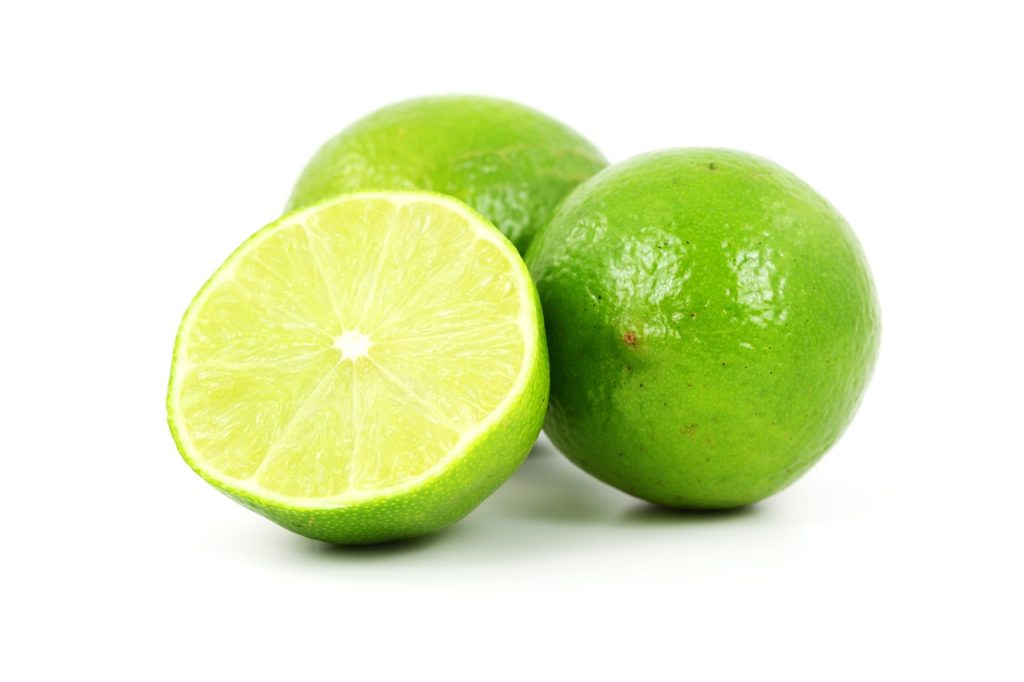
Aloe Vera:
Aloe vera is a popular natural remedy known for its soothing and healing properties, and it’s often used in scar treatment. Using aloe vera for scar treatment can be a gentle and natural way to promote healing and improve the appearance of scars over time.

Here’s how aloe vera can be used effectively for scar treatment:
Moisturizing and Hydrating:
Aloe vera gel is rich in vitamins, minerals, and antioxidants that help hydrate and nourish the skin. Applying aloe vera gel to scars keeps the skin moisturized, which can improve the appearance and texture of scars over time.
Anti-inflammatory Properties:
Aloe vera contains compounds like aloin and gibberellins, which have anti-inflammatory properties. Aloe vera gel helps reduce inflammation, redness, and swelling, especially in hypertrophic and keloid scars.
Collagen Production:
Aloe vera stimulates collagen production in the skin, which is essential for wound healing and scar repair. Regular application of aloe vera gel to scars may promote collagen remodeling, leading to smoother and more even-looking skin.
Lightening Dark Scars:
Aloe vera contains compounds that may help lighten dark scars and hyperpigmentation. Consistent use of aloe vera gel on scars can gradually fade discoloration and even out skin tone.
Soothing Itching and Discomfort:
Scars can often be accompanied by itching and discomfort, especially during the healing process. Aloe vera’s cooling and soothing properties can provide relief from itching and discomfort associated with scars.
**How to Use Aloe Vera for Scars:**
– Clean the scarred area with mild soap and water and pat dry.
– Apply a generous layer of pure aloe vera gel directly onto the scarred skin.
– Gently massage the gel into the skin using circular motions for a few minutes to ensure absorption.
– Leave the aloe vera gel on the skin for at least 30 minutes to an hour, or overnight for maximum benefits.
– Rinse off with lukewarm water and pat the skin dry.
– Repeat this process 1-2 times daily for several weeks to see noticeable improvements in the appearance of scars.
**Note:**
– It’s best to use pure, organic aloe vera gel directly from the plant or from a trusted source to ensure quality and effectiveness.
– While aloe vera is generally safe for most skin types, it’s always recommended to perform a patch test on a small area of skin before applying it to larger areas, especially if you have sensitive skin or allergies.
– For severe or persistent scars, consult with a dermatologist or healthcare professional for personalized treatment recommendations.
Vitamin E oil
Vitamin E oil is a popular remedy for scar treatment due to its antioxidant properties and potential benefits for skin health. While vitamin E oil can be a beneficial addition to scar treatment, it’s important to note that results may vary depending on individual skin types and the severity of scars. For severe or persistent scars, it’s advisable to seek professional advice for appropriate treatment options.

Moisturizing and Nourishing:
Here’s how vitamin E oil can be used effectively for scar treatment:
Vitamin E oil is a potent moisturizer that helps hydrate and nourish the skin. When applied to scars, it can help keep the skin soft and supple, reducing the appearance of dryness and rough texture.
Antioxidant Protection:
Vitamin E is a powerful antioxidant that helps neutralize free radicals, which can damage skin cells and contribute to scar formation. By protecting the skin from oxidative stress, vitamin E oil may aid in preventing further damage to scars and promoting healing.
Promoting Collagen Production:
Collagen is essential for skin repair and regeneration. Vitamin E oil may stimulate collagen synthesis in the skin, leading to improved elasticity and texture of scars over time. This can help reduce the visibility of scars and promote smoother skin.
Enhancing Skin Regeneration:
Vitamin E oil can help support the skin’s natural regeneration process by promoting cell turnover and renewal. Regular application of vitamin E oil to scars may encourage faster healing and fading of scars, resulting in a more even skin tone and texture.
Lightening Dark Scars:
Vitamin E oil has been suggested to have skin-lightening properties, which may help fade dark scars and hyperpigmentation. Continued use of vitamin E oil on scars can gradually reduce discoloration and improve overall skin tone.
**How to Use Vitamin E Oil for Scars:**
– Clean the scarred area with a gentle cleanser and pat dry.
– Gently massage a small amount of vitamin E oil onto the scarred skin using your fingertips.
– Allow the oil to absorb into the skin for at least 15-20 minutes before rinsing off with lukewarm water, or leave it on overnight for maximum benefits.
– Repeat this process once or twice daily for several weeks to see noticeable improvements in the appearance of scars.
**Note:**
– Use pure, natural vitamin E oil or vitamin E capsules without additives or preservatives for best results.
– Perform a patch test on a small area of skin before applying vitamin E oil to larger areas, especially if you have sensitive skin or allergies.
– Discontinue use if you experience any irritation or allergic reactions, and consult with a dermatologist or healthcare professional for further guidance.
Lemon Juice:
While lemon juice can be a cost-effective and natural option for scar treatment, it’s essential to use it cautiously and be mindful of its potential side effects. For severe or persistent scars, consider consulting with a dermatologist for professional advice and treatment options.

Here’s how lemon juice can be used for scar treatment:
Exfoliation:
Lemon juice contains citric acid, which acts as a natural exfoliant, helping to remove dead skin cells and promote cell turnover. This can help fade scars over time by encouraging the growth of new, healthy skin cells.
Skin Lightening:
The acidic nature of lemon juice can help lighten dark spots and hyperpigmentation, including scars. Regular application of lemon juice to scars can gradually reduce discoloration and even out skin tone.
Antioxidant Protection:
Lemon juice is rich in vitamin C, a powerful antioxidant that helps neutralize free radicals and protect the skin from oxidative stress. Antioxidants can promote skin health and aid in the repair and regeneration of damaged skin cells.
Collagen Production:
Vitamin C plays a key role in collagen synthesis, which is essential for skin repair and regeneration. Lemon juice may stimulate collagen production in the skin, helping to improve the elasticity and texture of scars over time.
Anti-inflammatory Effects:
Lemon juice contains anti-inflammatory properties that can help reduce redness, swelling, and inflammation associated with scars. This can provide relief from discomfort and promote healing.
**How to Use Lemon Juice for Scars:**
– Squeeze fresh lemon juice from a lemon into a small bowl.
– Dilute the lemon juice with equal parts water to reduce its acidity and minimize the risk of irritation, especially for sensitive skin.
– Using a cotton ball or swab, apply the diluted lemon juice directly to the scarred area.
– Leave the lemon juice on the skin for 10-15 minutes, then rinse off with lukewarm water.
– Repeat this process once daily for several weeks to see noticeable improvements in the appearance of scars.
**Note:**
– Lemon juice can cause skin irritation, especially for those with sensitive or dry skin. It’s essential to perform a patch test on a small area of skin before applying lemon juice to larger areas.
– Avoid sun exposure after applying lemon juice to the skin, as it can increase the skin’s sensitivity to UV radiation and potentially cause sunburn.
– If you experience any irritation or adverse reactions, discontinue use and consult with a dermatologist or healthcare professional for further guidance.
